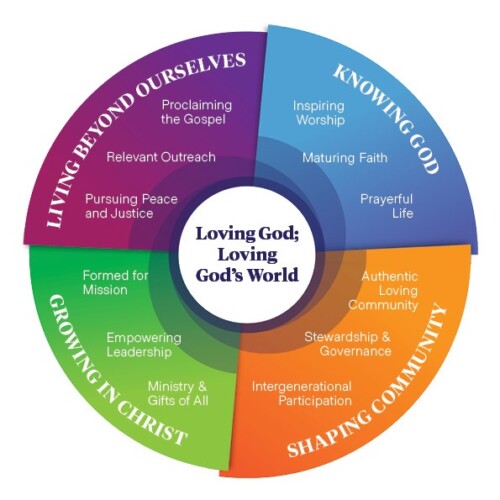The Healthy Church Model
“Knowing God, shaping community, growing in Christ and living beyond ourselves.”
The Healthy Church Model captures our vision for our life and work together, both as a diocese and at the local church level.
Our aim is to build church communities that flourish, demonstrating the qualities expressed in these verses:
“The gifts God gave were that some would be apostles, some prophets, some evangelists, some pastors and teachers, to equip the saints for the work of ministry, for building up the body of Christ, until all of us come to the unity of the faith and of the knowledge of the Son of God, to maturity, to the measure of the full stature of Christ.” (Ephesians 4:11-13)
Our Diocesan Healthy Church Model helps us increase our capacity for mission. Informed by the Anglican Marks of Mission, it identifies the signs of what we believe is a healthy church and our aspirations as a diocese committed to Te Tiriti o Waitangi and our Three Tikanga partnerships as the Anglican Church in Aotearoa, New Zealand, and Polynesia.
Knowing God
A community where prayerful worship helps people connect with God through Christ.
Relationship with God through Christ is the foundation of who we are as the whole people of God. Our life of worship and prayer both shapes and deepens our faith, which sustains us.
We value the diversity of our expressions of worship across the diocese, which are faithful to our tradition and relevant to the contexts in which we live.
Shaping community
Creating a loving community where all members enjoy genuine and caring relationships with each other and resources are managed well.
Our diocese is a network of welcoming and hospitable communities marked by love and care in which active participation across the generations is encouraged.
Looking after our resources well includes our buildings so they are fit for the ministry and purpose of their resident communities.
Growing in Christ
A community where individuals are developing in their faith and using their gifts for the good of all.
Following Christ is a journey of growth as we are formed for mission. Growing in Christ requires individual commitment and a supportive environment in which the whole people of God can discover and offer their gifts to the community.
Our leaders need to be nurtured and empowered for ministry and supported to develop their skills and resilience.
Living beyond ourselves
A community which makes generous and positive contributions in word and deed in the wider world.
Being the Church means living beyond our own concerns. We are called to bear witness to our faith through word and action, as we serve the communities around us in relevant ways.
Active involvement in local/global humanitarian and environmental issues is a mark of our commitment to justice and peace.